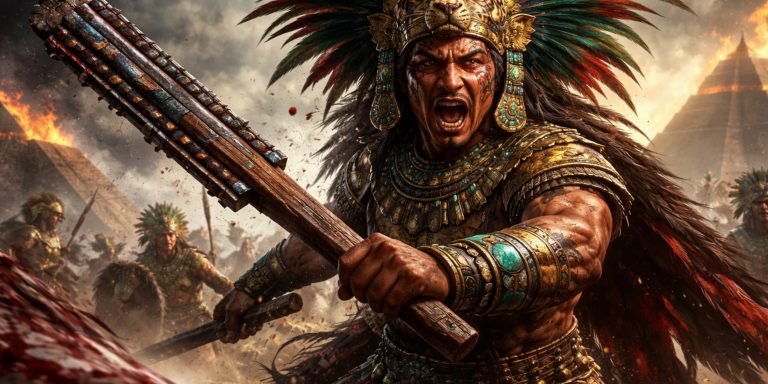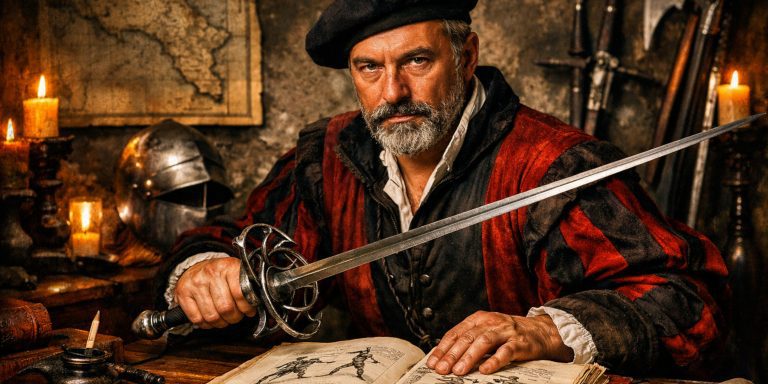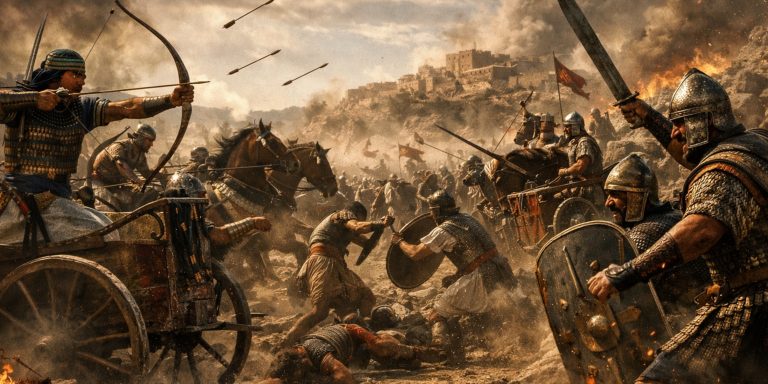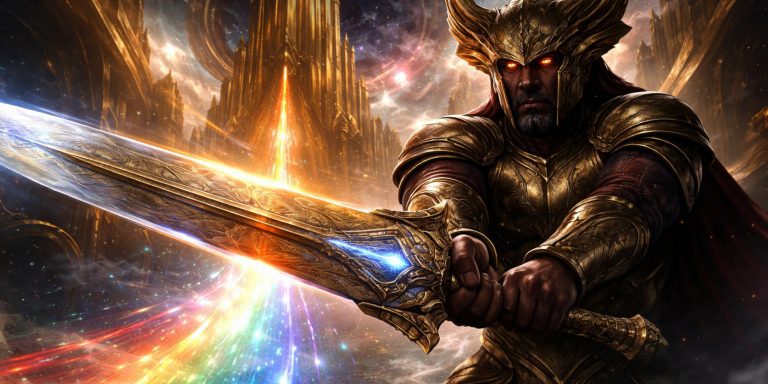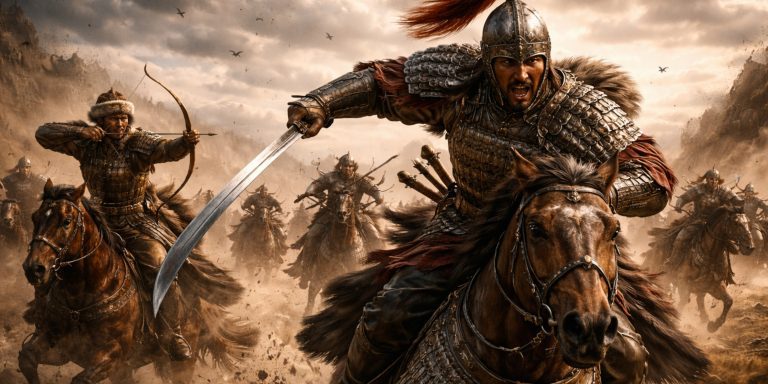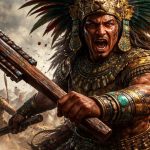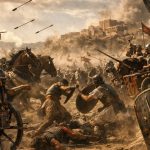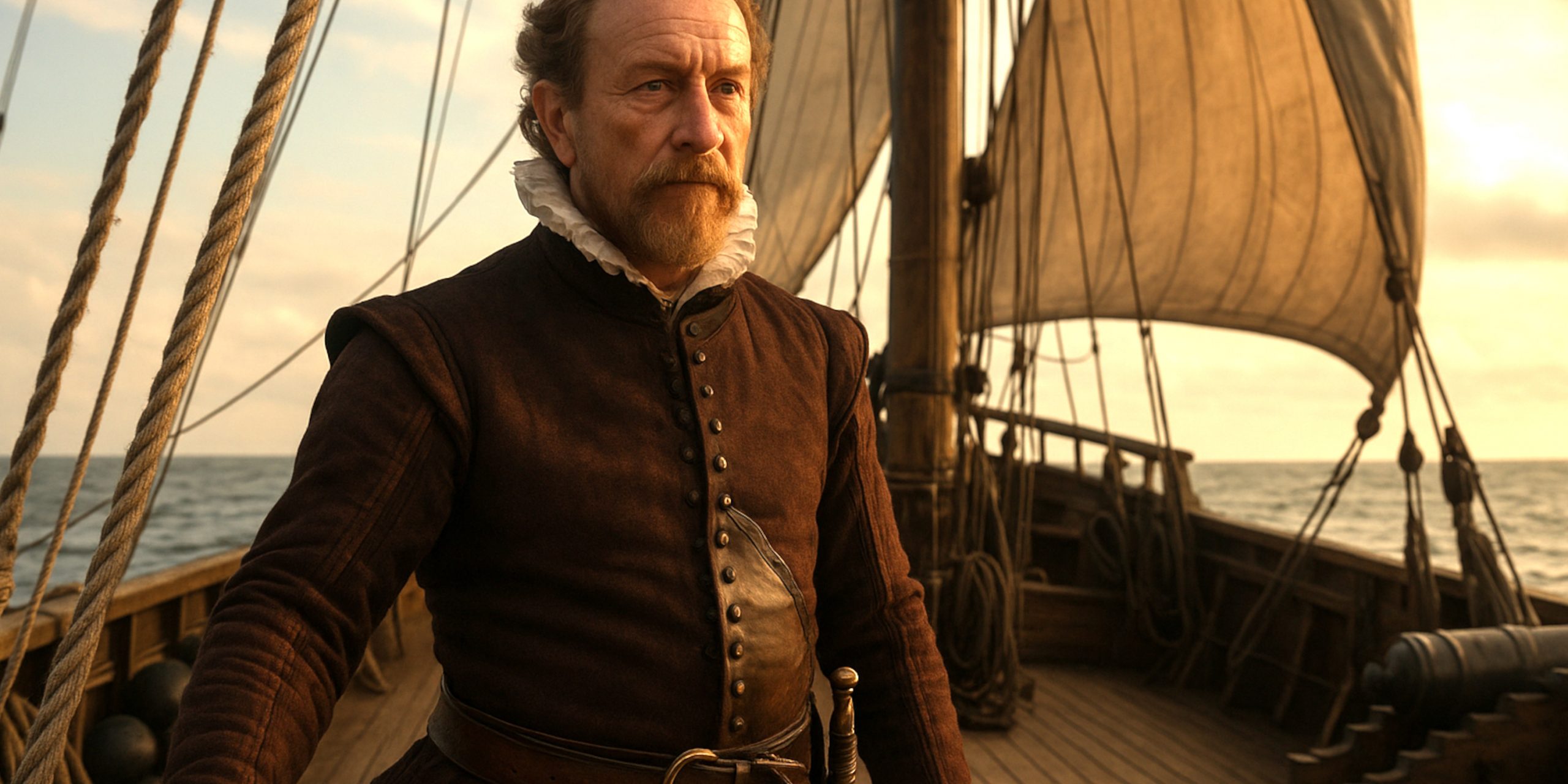
Sir Francis Drake was a privateer, explorer, naval commander and symbol of Elizabethan ambition. Celebrated in England and condemned by Spain, his career traversed slaving voyages, circumnavigation, treasure raids, and war. His legacy remains powerful, complex and sharply debated.
Early Life and Background
- Born: c. 1540, near Tavistock, Devon
- Family: Modest farming background, connected to the Hawkins shipping family
- First Voyages: Joined slaving expeditions in the 1560s under John Hawkins
- Skills: Navigation, cartography, seamanship and combat
Drake gained his earliest seafaring experience in the dangerous waters off West Africa and the Spanish Main, setting the tone for a career built on bold risk and profit.
Ships and Weapons
- Most Famous Ship: Golden Hind (formerly Pelican)
- Armament: Small cannon, swivel guns, and boarding pikes
- Naval Tactics: Speed, surprise, deception, and hit‑and‑run assaults
- Support Fleet: Small squadron of light, manoeuvrable ships
Drake’s ships were not the largest afloat, but they were built for cunning. Firepower was secondary to his strategy of swift attacks and quick withdrawal.
Circumnavigation and Bounty
The Famous Voyage (1577–1580)
Drake was the first Englishman to circumnavigate the globe. During the voyage:
- He captured Spanish and Portuguese treasure ships
- Seized gold, silver, jewels, spices, and exotic goods
- Took over 360,000 pesos from the Nuestra Señora de la Concepción, a Spanish galleon
- Returned with treasure later valued at hundreds of millions in modern currency
This voyage not only brought immense wealth to England but also humiliated Spain, solidifying Drake’s reputation.
Major Raids and Battles
Nombre de Dios Raid (1572–73)
- Coordinated assault on Spanish bullion convoys
- Captured around 20 tonnes of gold and silver
- Notable for the ambush of a treasure-laden mule train
- Famous quote: “Our voyage is made,” spoken after producing a Spanish gold bar
Cádiz Raid (1587)
- Pre-emptive strike on the Spanish Armada
- Destroyed or disabled 30+ ships in port
- Delayed the Armada by a year
- Described as “singeing the King of Spain’s beard”
Spanish Armada (1588)
- Served as Vice-Admiral under Lord Howard
- Commanded Revenge
- Key role in the fire-ship strategy at Calais
- Captured the damaged Rosario
- Disrupted Armada supply lines
Drake’s flair for improvisation and aggression was instrumental in England’s defensive success.
Treasure and Plunder
Drake was one of the most successful privateers in history. Key spoils included:
| Raid / Expedition | Estimated Value | Notable Goods |
|---|---|---|
| Nombre de Dios (1573) | ~20 tonnes of silver/gold | Silver bars, gold ingots, pearls |
| Golden Hind (1579) | ~360,000 pesos | Gold, silver, Chinese porcelain, gems |
| Cádiz (1587) | Strategic not monetary | Sinking and capture of Armada vessels |
England’s treasury and Drake’s own fortune swelled after these ventures.
Contemporary Quotes
“The people do idolise him, as a demi-God for his services against the Spaniard.”
– Anonymous English observer, c. 1589
“He hath done more with a handful of ships, than all the navy of Spain with their mighty fleet.”
– London pamphlet, post-Armada
“He died, as he lived, resolute and brave.”
– Eyewitness account of his final hours
Final Expedition and Death
Last Campaign (1595–96)
- Aimed to capture Panama and Spanish forts
- Faced fierce resistance and disease
- Failed to achieve major objectives
- Drake became ill with dysentery
- Died on 28 January 1596 near Portobelo, Panama
- Buried at sea in full armour, in a lead-lined coffin
His final voyage was a sombre close to an otherwise meteoric career.
Legacy and Reassessment
In Favour:
- First English circumnavigator
- Naval strategist behind key Armada victory
- Catalyst for England’s global ambitions
- Knighted by Queen Elizabeth I (1581)
Under Scrutiny:
- Active participant in early slave trade
- Committed ruthless raids on civilians
- Motivated as much by profit as patriotism
Drake remains a national figure with statues, place names and legends attached to his name, but modern evaluations acknowledge the human cost of his actions.
The Seven Swords Takeaway
Sir Francis Drake was not simply a privateer or an explorer. He was a complex actor on the world stage: a weapon of English imperial ambition, a tormentor of Spanish colonies, and a seaman of rare daring. His story sits at the convergence of power, plunder and exploration.
Watch the documentary:

